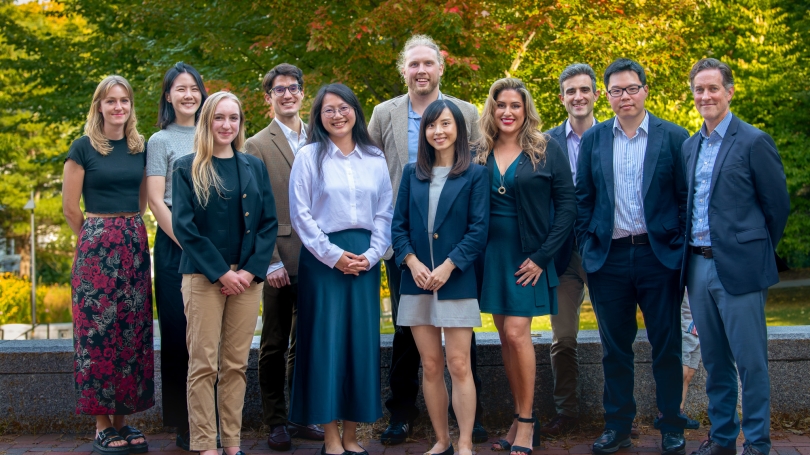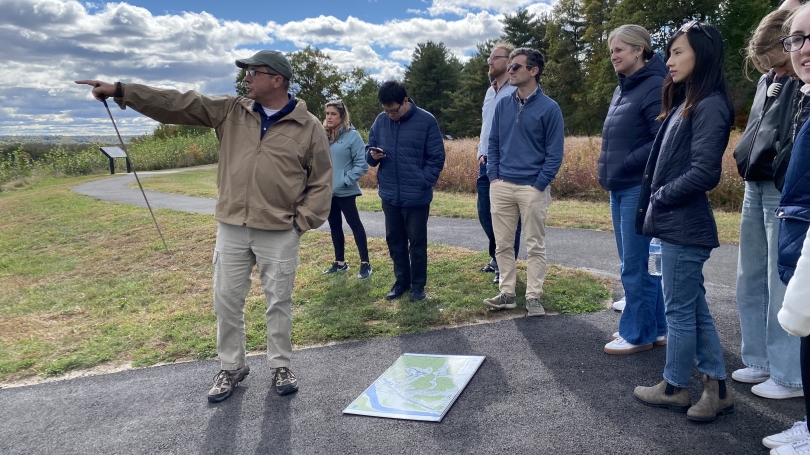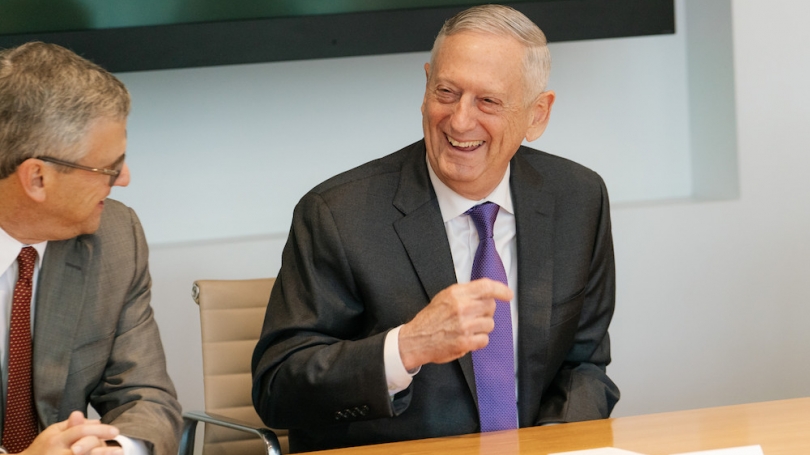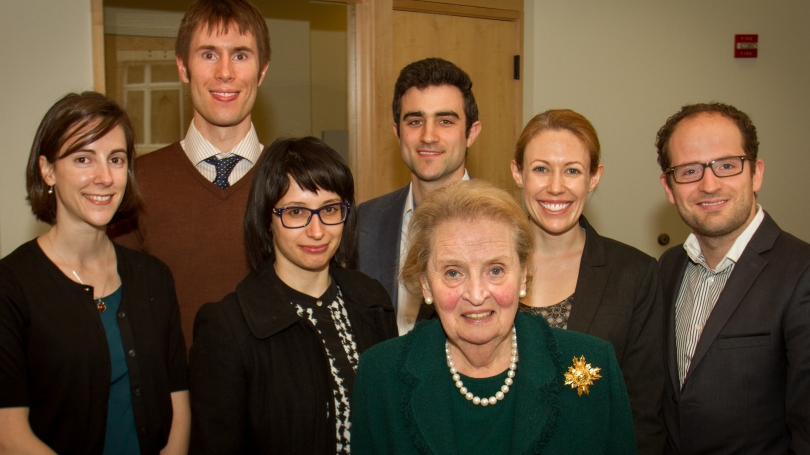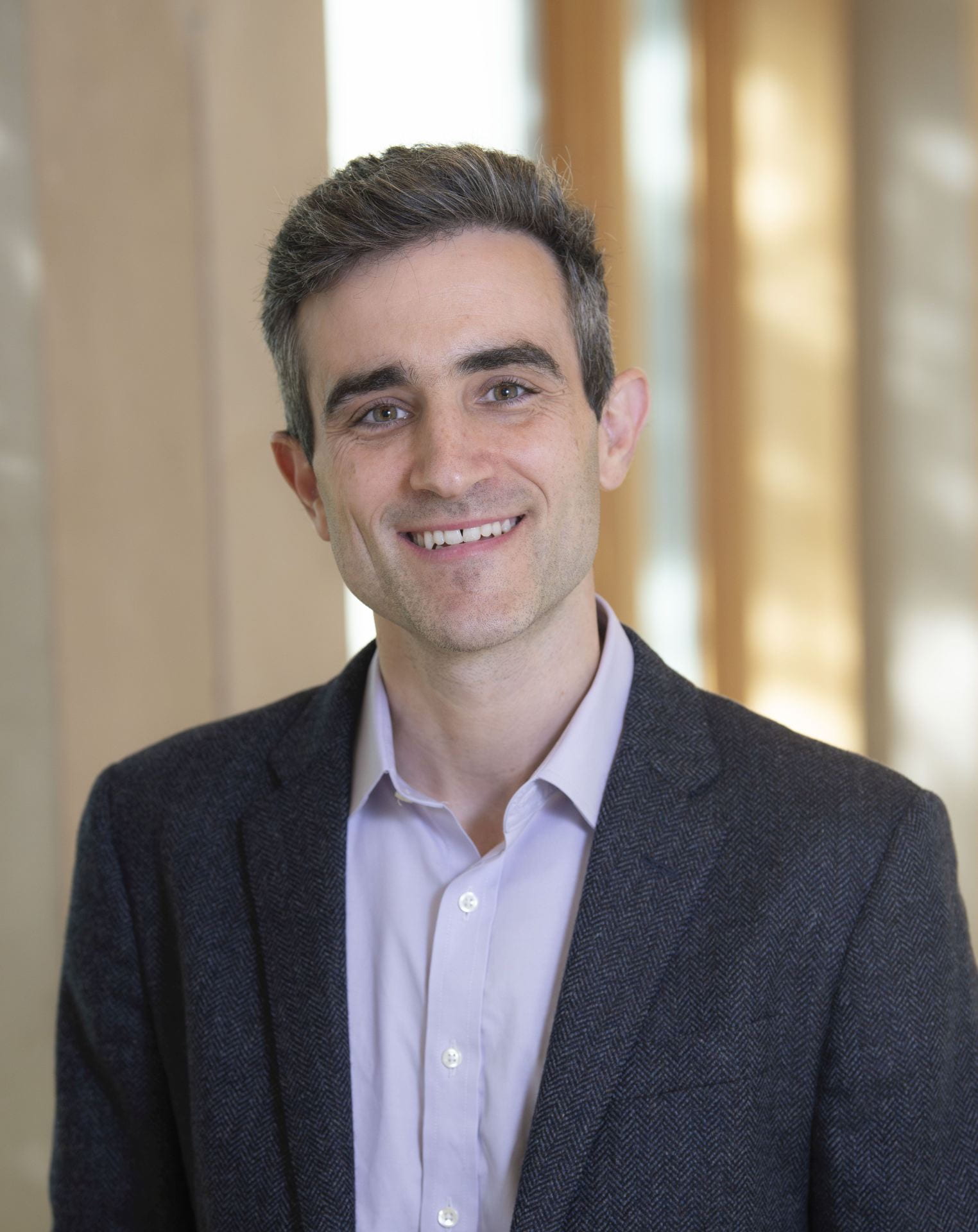The E. John Rosenwald, Jr. '52 TU'53 Fellows in U.S. Foreign Policy and International Security are selected to spend a minimum of ten months and up to one year in-residence at Dartmouth on research and writing about international issues related to one of the Dickey Center's research areas: environment, health, human development, gender, and security. Scholars from all disciplines, including political science and history, are welcome to apply.
While scholars at any stage of their career are eligible, applications from recent recipients of a PhD or equivalent degree are especially encouraged to apply. Fellows are provided with an office and access to Dartmouth faculty and resources. They must be in-residence during their fellowship and participate in Dickey Center seminars and events.
U.S. Foreign Policy and International Security Fellows utilize their year at Dartmouth to maximize progress on their research, build contacts with other Fellows, Dartmouth faculty and with policy networks, and contribute to the intellectual life of the College.
All Fellows are assigned a faculty mentor with whom they meet on a regular basis. Faculty mentors are intended to provide professional advice for career building and integrating into the Dartmouth intellectual community as well as substantive expertise.
Fellows typically will:
- Give a faculty seminar on the work discussed in the Dickey Center's seminar series on international politics and foreign policy
- Present work in the departments of Government, History, and in other seminar series at the College
- Participate in events for Fellows organized throughout the year – topics will be determined on the basis of mutual interest and perceived need
One of the motivations of the Fellows program is to help bridge the gap between academic work on U.S. foreign policy and international security and the world of policy. Activities in the fellowship program include:
- Seminar on Op Eds, reaching out to media
- Publishing for journals, books
- Op-Eds
- Networking with policy makers, Dickey Center visitors
- Building professional contacts
- Washington DC outreach, including policy workshops
Fellows have joint sessions and sometimes one-on-one meetings with visiting practitioners, including (in the last several years):
- Jake Sullivan, National Security Advisor
- Mallory Stewart, Assistant Secretary for the Bureau of Arms Control, Verification, and Compliance
- Colin Kahl, Undersecretary of Defense for Policy
- James Swan, UN Special Representative of the Secretary-General for Somalia
- Bisa Williams, US Ambassador to Niger
- Keith Harper, US Ambassador and Permanent Representative to the United Nations Human Rights Council
- Hillary Clinton, former Secretary of State, US Senator (NY), and First Lady
- William Burns, recently former Deputy Secretary of State when here, current Director of the CIA
- General James Mattis (Ret.), former Secretary of Defense and Commander of U.S. Central Command
- Tony Blinken, recently former Deputy Secretary of State when here, current Secretary of State
- Harold Koh, former Legal Adviser of the State Department
- General Carter Ham (Ret.), former Commander of U.S. Africa Command
In addition, a major goal of the fellowship is to build networks. Toward that end, the fellowship seeks to nurture connections among Fellows and between them and practitioners. After Fellows leave Dartmouth, they should expect to be connected to other alumni via social media and USFP/IS alumni events held in Hanover or Washington.
